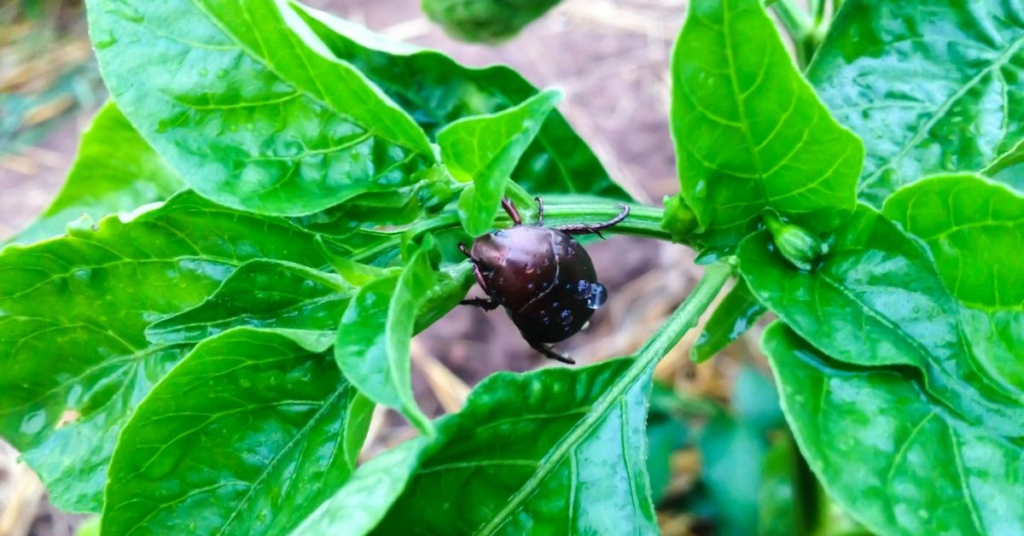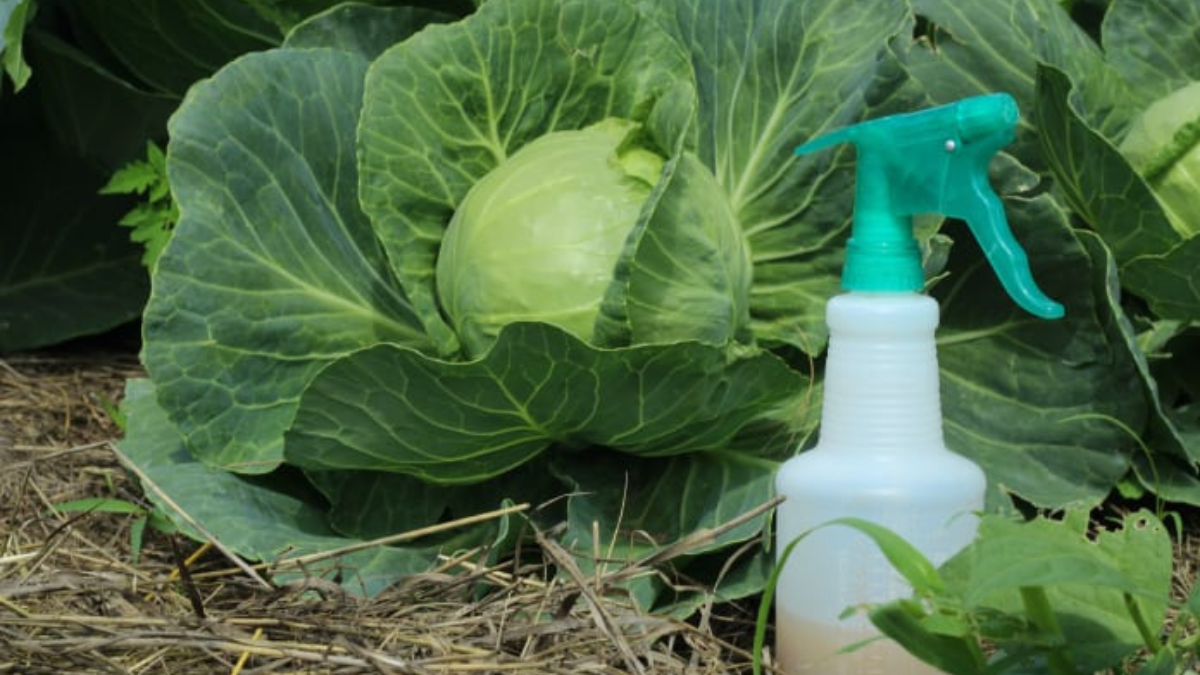When it comes to growing vegetables, one of the most common challenges faced by gardeners is dealing with pesky insects. These tiny creatures can wreak havoc on your vegetable plants, causing damage and reducing your harvest. To protect your vegetable garden, it is essential to find the best insect killer that effectively eliminates pests without harming your crops or the environment. In this article, we will explore different types of insect killers and identify the top choices for vegetables.
Bonide Captain Jack's Deadbug Brew Flower & Vegetable Garden Dust, 4 lb. Ready-to-Use Dust For Organic Gardening
Understanding Insect Killers

Before diving into the best insect killers for vegetables, it’s important to understand the various options available. Insect killers are substances or methods used to control and eradicate insects that may harm plants. They can be broadly categorized into two main types: natural insect killers and chemical insect killers.
Types of Insect Killers
- Natural Insect KillersNatural insect killers are derived from organic sources and are considered environmentally friendly. These methods rely on natural deterrents, such as plant extracts or predator insects, to control pests. Some popular natural insect killers for vegetables include:
- Neem Oil: Neem oil is a natural insecticide derived from the neem tree. It acts as a repellant and disrupts the insect’s life cycle, preventing further infestations.
- Diatomaceous Earth: Diatomaceous earth is made from the fossilized remains of microscopic aquatic organisms. It works by dehydrating insects and damaging their exoskeletons, leading to their demise.
- Beneficial Insects: Certain beneficial insects, such as ladybugs and praying mantises, feed on garden pests. Introducing these insects into your garden can help control insect populations naturally.
- Chemical Insect KillersChemical insect killers are synthetic substances designed to kill or repel insects. While effective, they should be used with caution due to their potential environmental impact. When using chemical insect killers, it is crucial to follow the instructions carefully. Some common chemical insect killers for vegetables include:
- Pyrethroids: Pyrethroids are a class of insecticides that target and kill a wide range of insects. They are commonly used to control aphids, caterpillars, and beetles.
- Spinosad: Spinosad is a natural substance derived from soil bacteria. It effectively controls pests such as thrips, caterpillars, and fruit flies.
- Systemic Insecticides: Systemic insecticides are absorbed by the plant and provide long-lasting protection. They can be effective against aphids, mealybugs, and whiteflies.
Insect Killers for Vegetables
Now that we have an understanding of the types of insect killers available, let’s focus on those specifically suited for vegetable gardens. Vegetable plants can be sensitive to certain chemicals, so it’s essential to choose insect killers that are safe for consumption and do not leave harmful residues on the crops.
Considerations for Vegetable Gardens
Before selecting an insect killer, there are a few factors to consider to ensure the best results for your vegetable garden:
- Targeted Pests: Identify the specific pests that are causing damage to your vegetables. Different insect killers are effective against different types of pests.
- Organic Certification: If you prefer organic gardening methods, look for insect killers that are certified organic and meet the standards set by organic gardening associations.
- Application Frequency: Consider the frequency of application required. Some insect killers need more frequent application, while others provide longer-lasting protection.
- Compatibility with Other Treatments: If you are using other treatments or fertilizers in your vegetable garden, ensure that the insect killer is compatible and won’t interfere with their effectiveness.
Best Insect Killers for Vegetables

Based on the considerations mentioned above, here are the best insect killers for vegetables:
- Organic Options
- Neem Oil: Effective against a wide range of pests, including aphids, mites, and caterpillars. Safe for edible crops and leaves minimal residue.
- Insecticidal Soap: Kills soft-bodied insects like aphids and mealybugs. Requires thorough coverage of plants for maximum effectiveness.
- Synthetic Options
- Spinosad: Controls various pests such as thrips, caterpillars, and fruit flies. It breaks down quickly in the environment and has low toxicity to humans and pets.
- Pyrethroids: Ideal for controlling beetles, caterpillars, and leafhoppers. Ensure proper application and avoid excessive use to prevent harm to beneficial insects.
Application Methods

The effectiveness of insect killers depends on proper application. Here are some application methods for vegetable gardens:
- Sprays: Dilute insecticides or insecticidal soaps in water and spray the solution directly onto the plants, targeting both sides of the leaves and stems.
- Dusts: Apply powdered insecticides, such as diatomaceous earth, by dusting them lightly onto the plants. Take precautions to avoid excessive inhalation.
- Systemic Treatments: For long-lasting protection, use systemic insecticides that are absorbed by the plant’s tissues. Follow the manufacturer’s instructions for application.
Safety Precautions
When using any insect killer, it’s important to prioritize safety. Consider the following precautions:
- Protective Clothing: Wear gloves, long sleeves, and eye protection when handling insecticides to prevent skin contact and eye irritation.
- Avoid Overuse: Use insect killers as directed. Applying excessive amounts can harm beneficial insects and contaminate the environment.
- Read Labels: Carefully read and follow the instructions on the product labels. Pay attention to waiting periods and harvest intervals to ensure the safety of your vegetables.
Tips for Effective Use
To maximize the effectiveness of insect killers in vegetable gardens, keep these tips in mind:
- Early Detection: Monitor your garden regularly for signs of pest infestation. Early detection allows for prompt treatment and better control.
- Timing: Apply insect killers when pests are most vulnerable. Follow the recommended timing provided by the product instructions.
- Thorough Coverage: Ensure complete coverage of plants, targeting both the upper and lower surfaces of leaves. This helps eliminate hidden pests.
Conclusion
Insect killers play a vital role in protecting vegetable gardens from destructive pests. By understanding the types of insect killers available, considering the specific needs of your vegetable garden, and following proper application and safety measures, you can effectively control pests without compromising the health of your crops. Remember, the best insect killer for your vegetables depends on the targeted pests, your gardening preferences, and the safety of the products you choose.


